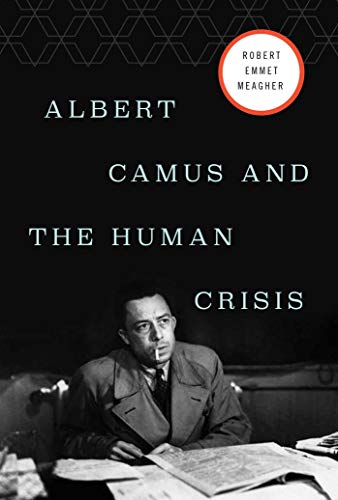Robert Meagher on Camus and Weil
Robert Emmet MeagherThe following is excerpted from Robert Emmet Meagher’s Albert Camus and the Human Crisis (New York: Pegasus Books, 2021), pp. 134-135:

When in 1948, three years after Weil’s death, Camus first read the manuscript of her masterwork, L’Enracinement (published in English as The Need for Roots), he found in it both inspiration and confirmation at a time when he was in need of both. He saw in Weil’s writing both a critique of Marx and a way forward for the revolution he sought to promote, commenting that it was “impossible to imagine the rebirth of Europe without taking into consideration the suggestion outlined in it by Simone Weil.” L’Enracinement contained the fullest expression of Weil’s political philosophy, even as Camus was laboring to craft his own. It may not be an overstatement to say that she became for him a muse and a companion. In all, Camus edited eight of Weil’s books for the Gallimard Espoir series that Camus directed. We may sense how deeply Weil’s voice resonated in Camus when we read how she described what it would mean to be rooted, and to live in a community where the needs of the soul are met [. . . ., quoting from The Need for Roots].

Camus cited Simone Weil only several times in his writings, but her presence and influence are evident throughout The Rebel. We know from Weil’s mother that Camus, until shortly before his fatal car crash, frequently visited the Paris apartment in which Simone had been raised until her family fled to Britain and to which her mother returned after the war. As Camus edited one after another of Weil’s posthumous manuscripts for publication, he discussed them with her mother and consulted her on various points. Camus’s most remarkable and poignant visit to the childhood home of Simone Weil occurred on the day before he flew to Sweden to receive the Nobel Prize. He went there to “collect his thoughts” and to request a photo of Simone Weil to take with him to Stockholm. In further recognition of his close bond with the woman who in 1943, shortly before her death, sent an anonymous letter to de Gaulle and signed it un résistant intellectual,
Camus made mention in Stockholm of his intimate ties to Weil. When asked by a reporter which writers he felt closest to, Camus named the poet Réne Char and Simone Weil. When the journalist observed that Weil was dead, Camus replied that death never comes between true friends.
citing Robert Zaretsky, “The Logic of the Rebel: On Simone Weil and Albert Camus,” Los Angeles Review of Books (March 7, 2020).

In his Nobel acceptance speech, Camus spoke of the responsibilities of the writer and acknowledged his “limits and debts.” Surely among those debts was what he owed to Simone Weil, whose words doubtlessly shed light on and sustained the years in which he labored his way through The Rebel [. . . .]
About the Author
Robert Emmet Meagher is a professor emeritus of humanities at Hampshire College.
2 Recommendations
